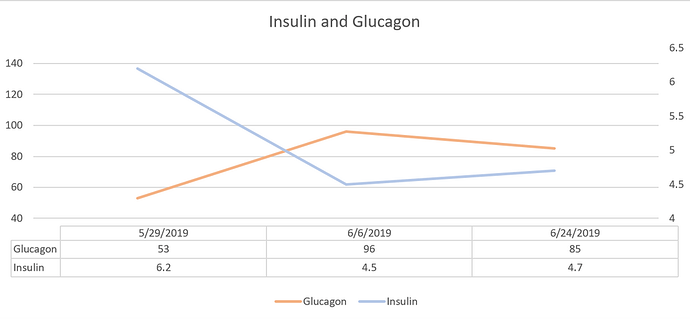Been listening to this podcast with Dr. Naiman and Dr. Bikman:
At about the 48 minute mark, Dr. Naiman relates his theory that there are two types of insulin responses, basal insulin, and post-prandial insulin. I get that, sounds reasonable. (I’m assuming “basal insulin” is basically morning, fasting overnight insulin levels.)
But then he makes the statement that eating fat causes your basal insulin to go up. Ah, what?
He bases this on people eating very low fat, very high carb diets. They do tend to have lower basal insulin, but that’s a very weird diet. Even Peter D from Hyperlipid has a hard time describing this diet:
Because people eating this diet have low basal insulin does not mean that eating fat causes basal insulin to increase.
Does anyone have Ted Naiman’s book or can otherwise expound on his theory as to why eating fat causes basal insulin to go up? Because I’m at a loss. I think it’s complete bullocks, honestly, and can’t think of any mechanistic way this works.
Ah, to have an insulin meter. I’d place good money on a bet that I could eat a very high fat diet and my basal insulin would decrease or at least not increase.
(Then again, I thought eating high protein was like eating a candy bar, so I bought a CGM and tested very high protein, low fat, and got zero blood sugar change.)


